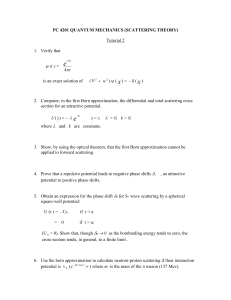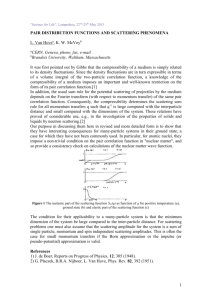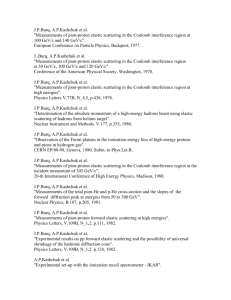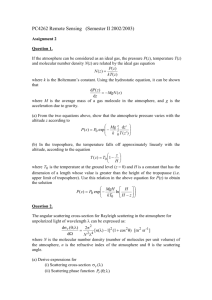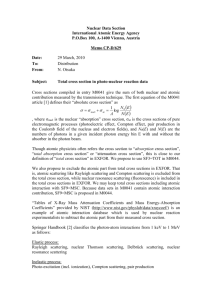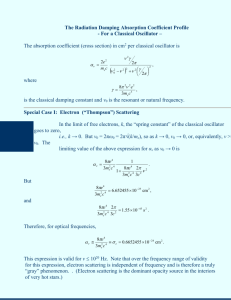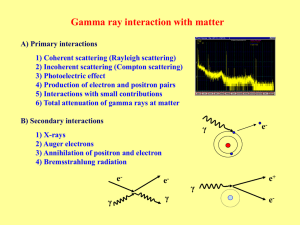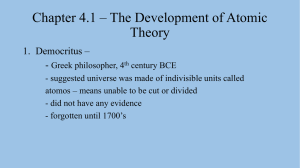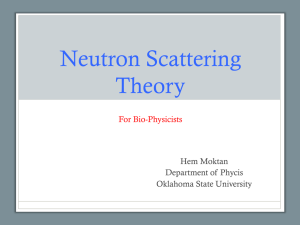Elastic Scattering
advertisement
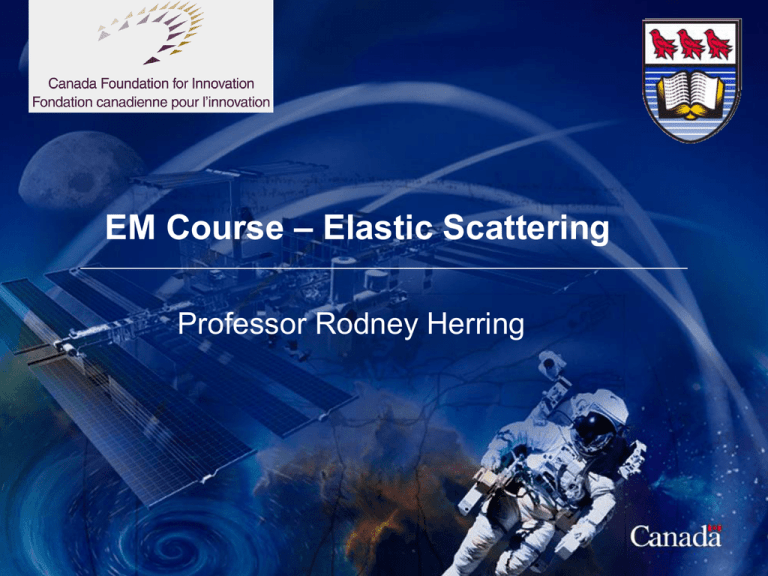
EM Course – Elastic Scattering Professor Rodney Herring Elastic Scattering - Introduction Transverse Waves particles and waves Elastic Scattering of Electrons Elastic Scattering of Electrons Interference 1 Point Source 2 Point Sources Elastic Scattering of Electrons Elastic Scattering of Electrons Scattering Cross Section of Electrons For electrons scattering from the nucleus to high angles, the differential cross-section is given by, For electrons scattering from the nucleus to high angles, the total nuclear cross-section is given by, The beam energy, Eo, the angle of scattering (q) and the atomic number, Z, all affect the probability that an electron will be scattered by the nuclei of atoms in the specimen. These expressions cannot calculate the cross sections exactly because they only consider the particle nature of electrons and ignore their wave nature. Scattering Cross Section of Electrons For C, a 1 MV TEM does very little radiation damage to the specimen! Mean Free Path of Electrons Atomic Scattering Factor, f(q) The Rutherford expressions of electron scattering could not calculate the cross sections exactly because they only considered the particle nature of electrons and ignored their wave nature. A full wave mechanics treatment of scattering cross sections is well beyond the scope of this course. The easiest and most familiar concept used is the atomic-scattering factor, f(q), which is related to the differential elastic cross section by, Atomic Scattering Factor, f(q) Zero-loss & Phonon-loss Intensities for Gallium Arsenide (GaAs) 50 40 Intensity 30 444 222 20 666 atomic planes 10 0.2 0.4 0.6 0.8 1.0 s (1/Å) 0 10 q (mrad) Doyle and Turner Acta Cryst. (1968). A24, 390 20 Atomic Scattering Factor, f(q) THE Structure Factor, F(q) THE Structure Factor, F(q) An example follows THE Structure Factor, F(q) THE Structure Factor, F(q) THE Structure Factor, F(q) Diffraction Equations Diffraction Equations (Sir William H. Bragg and Mr. W. Lawrence Bragg) (father - son team) 1915 Diffraction Equations • As seen before, the destructive and constructive interference of a beam of x-rays or electrons off atomic planes is shown below. Destructive Interference Constructive Interference Chapter Summary
